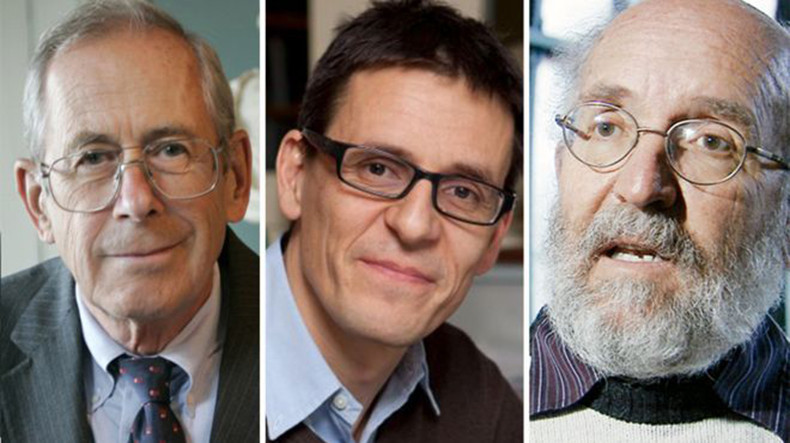
Cosmic discoveries win Nobel Prize in physics
Three scientists have been awarded the 2019 Nobel Prize in Physics for "ground-breaking" discoveries about the Universe, BBC News reports.
James Peebles, Michel Mayor and Didier Queloz were announced as this year's winners at a ceremony in Stockholm.
They were jointly awarded the prize for work on the evolution of the Universe and the discovery of a distant planet around a Sun-like star in 1995.
The winners will share the prize money of nine million kronor (£738,000).
Winnipeg, Canada-born James Peebles was honoured for his contributions to the understanding of the evolution of the Universe and Earth's place in the cosmos.
With others, he predicted the existence of cosmic microwave background (CMB) radiation, the so-called afterglow of the Big Bang.
Asked what he considered his most important contribution, Prof Peebles said he was "hard-pressed to say", adding that his work had been collaborative.
"It's a life's work," he told the news conference at the Royal Swedish Academy of Sciences in Stockholm.
Michel Mayor and Didier Queloz were awarded the prize for finding 51 Pegasi b, a gas giant orbiting a star 50 light-years away.
It was the first exoplanet discovered around a main-sequence star - ones that fuses hydrogen atoms to form helium atoms in their core. These are the most numerous kind of star in the Universe, and include our own Sun.
They used the pioneering radial velocity technique. This detects distant worlds indirectly, by measuring how a parent star "wobbles" when it is tugged on by the gravity of an orbiting planet.
The astronomers were working at the University of Geneva, Switzerland, when the discovery was made. Mayor, 77, is still there as a professor emeritus; Queloz, 53, now holds positions at Geneva and at the University of Cambridge, UK.
Related news
Newsfeed
Videos






























